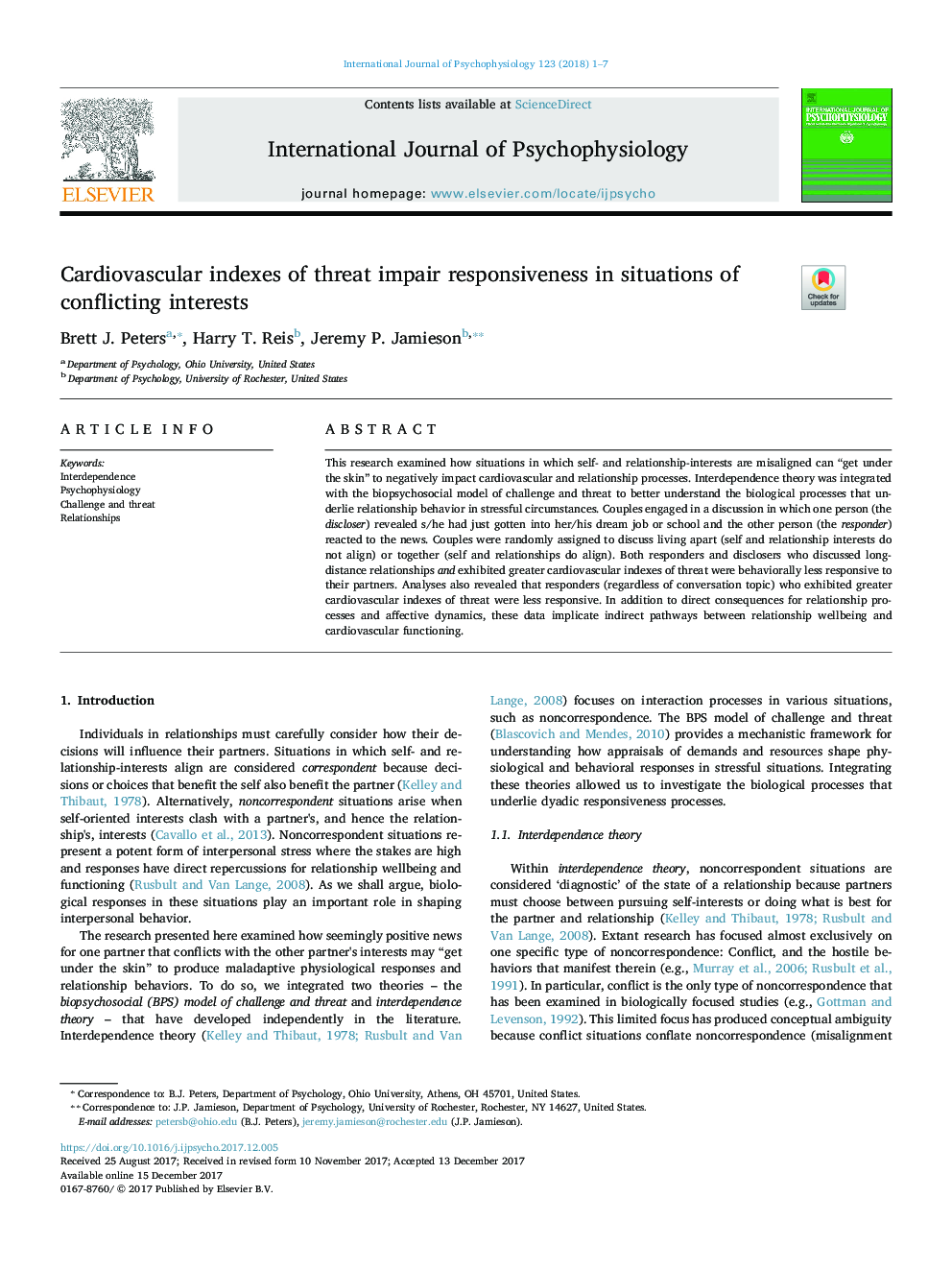| Article ID | Journal | Published Year | Pages | File Type |
|---|---|---|---|---|
| 7294897 | International Journal of Psychophysiology | 2018 | 7 Pages |
Abstract
This research examined how situations in which self- and relationship-interests are misaligned can “get under the skin” to negatively impact cardiovascular and relationship processes. Interdependence theory was integrated with the biopsychosocial model of challenge and threat to better understand the biological processes that underlie relationship behavior in stressful circumstances. Couples engaged in a discussion in which one person (the discloser) revealed s/he had just gotten into her/his dream job or school and the other person (the responder) reacted to the news. Couples were randomly assigned to discuss living apart (self and relationship interests do not align) or together (self and relationships do align). Both responders and disclosers who discussed long-distance relationships and exhibited greater cardiovascular indexes of threat were behaviorally less responsive to their partners. Analyses also revealed that responders (regardless of conversation topic) who exhibited greater cardiovascular indexes of threat were less responsive. In addition to direct consequences for relationship processes and affective dynamics, these data implicate indirect pathways between relationship wellbeing and cardiovascular functioning.
Related Topics
Life Sciences
Neuroscience
Behavioral Neuroscience
Authors
Brett J. Peters, Harry T. Reis, Jeremy P. Jamieson,
